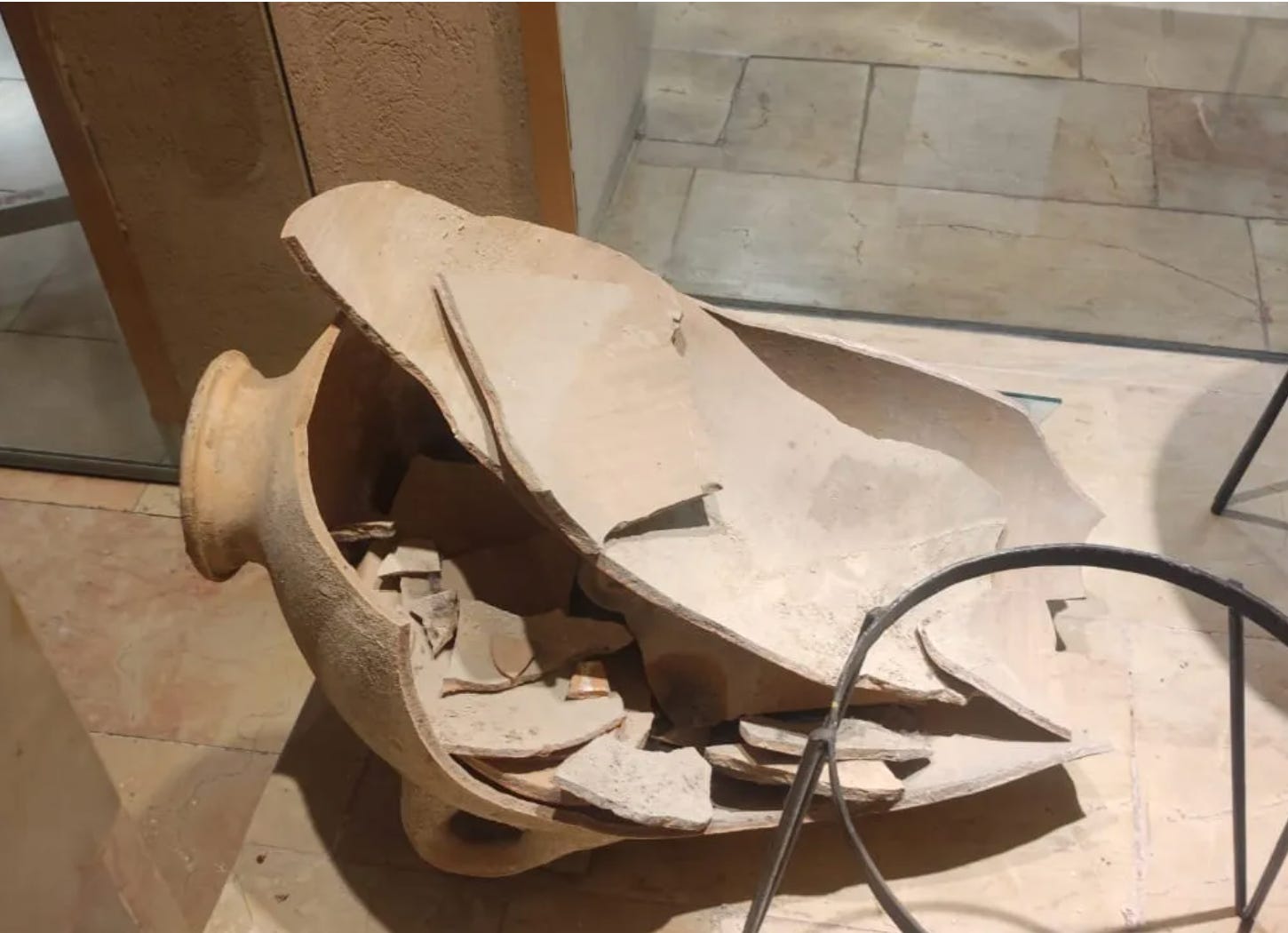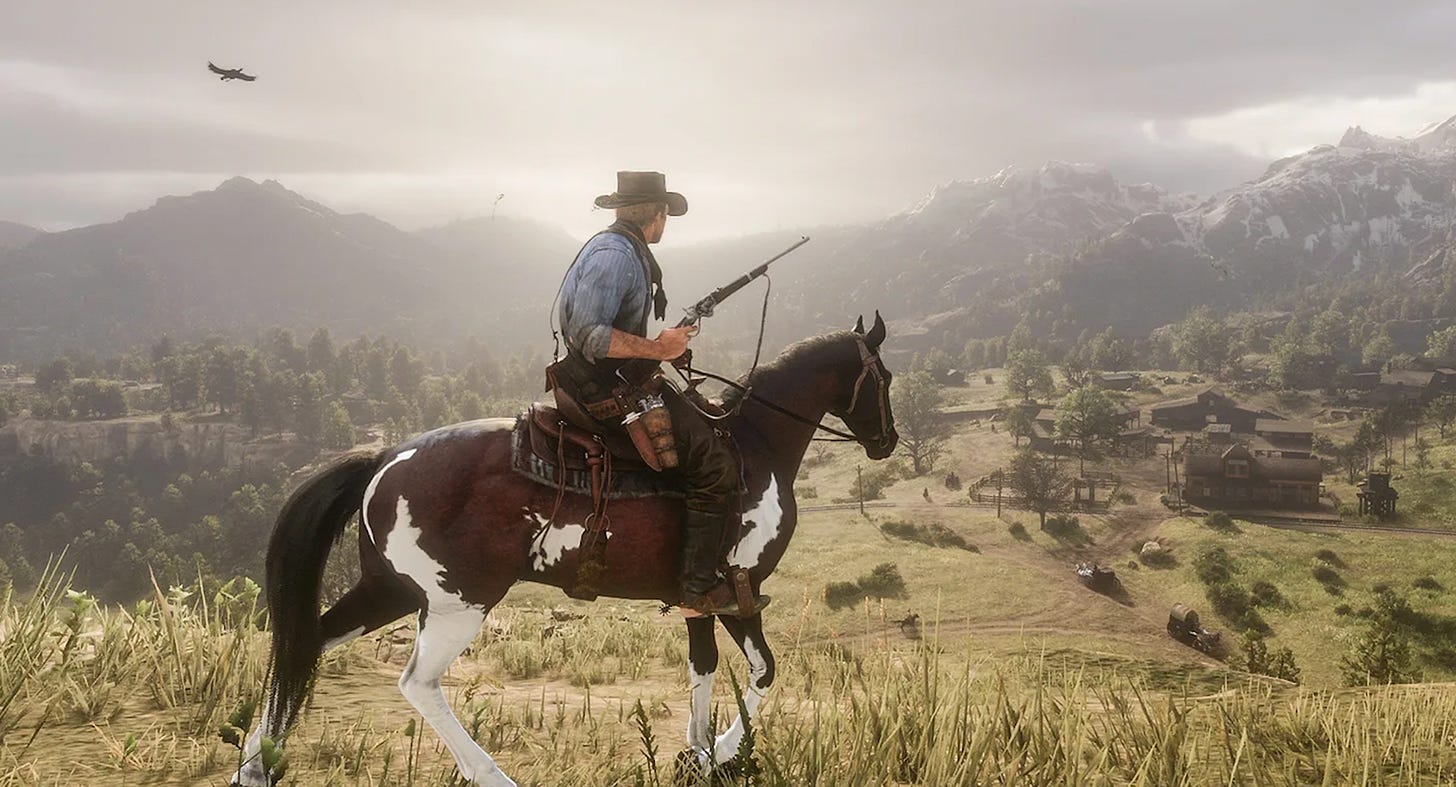Unruly History in the News #71
Hello everyone,
My original intro here wrote that the dog days of summer are almost over—only to find out that the dog days of summer are an actual time period (that is already over)! The Ancient Greeks incorporated the constellation Sirius in their astrological system and believed that when the dog rose alongside the sun was the hottest period of the year because of Sirius. This roughly corresponds to July 3 to August 11 every year.
So, the dog days of summer are quite over, but at least our autumn (starting September 22) is in sight. Happy September is really what I’m trying to say here!
…Also, would anyone be interested in some bonus episodes about ancient astrological systems? That sounds like a fun distraction!
Okay, on to history acting unruly in the news!
Speaking of heat, here are 5 tips from ancient homes to keep your house cool until autumn.
And speaking of dogs, how did wolves evolve into man’s best friend?
Americans tends to hate the summer drone of cicadas, but the humming bug has become one of the charming symbols of Provence, France.
While we’re at it: The hot and punishing Sahara wasn’t always so. This accidentally discovered burial ground reveals the lush past of the world’s most inhospitable desert.
In local/personal news, it was this week in 1781 that Los Angeles was founded. The Spanish governor called the city El Pueblo de Nuestra Señora la Reina de los Ángeles de Porciúncula, or The Town of Our Lady the Queen of the Angels of Porciúncula (named for Rio Porciúncula, which today we call the LA River). Of course, Indigenous people already inhabited the area so this set off centuries of violent conflict.
The beautiful and heartening history of the Paralympics. (Are you watching?)

Archer Sheetal Devi represents India in the 2024 Paralympic Games in Paris. Source. Similarly, what were the Gay Olympics? What do they tell us abotu the use of stadiums as a site for political struggle?
Speaking of sports, legend has it that Babe Ruth predicted this home run. Did he really though?
You probably know the Nuremberg Trials as the time when Nazis were prosecuted for war crimes. They also laid the foundation for medical ethics today.
113 years ago this week, Guillaume Apollinaire was (wrongfully) arrested for stealing the Mona Lisa. What made him suspicious? His “‘mysterious background’ (he was born in Rome, his mother was Polish and Lithuanian) and ‘radical views’ (Cubism).” Also he was a poet, which is obviously a red flag, even in Paris. (I’m being sarcastic, don’t come at me.)
Despite Apollinaire’s innocence, this was the heist that made the Mona Lisa famous.
Speaking of poetry, Sappho’s poetry paved the way for centuries of queer literature.
Inside the race to save mezcal from
hipsters in Los Feliz, LAthe world.Dragons and dragon-like creatures have their place in almost every culture across time—and for many years they were symbols of good luck. So how did they become monsters in Medieval Europe?
For Queen Victoria’s coronoation, the nobility tried to bring back chivalry and Medieval games. The event was rained out.
This is kind of sweet: A four-year-old accidentally broke a rare intact Bronze Age vase because he was curious about what was inside. Now he’s going to get to see it being restored.

The large (now) broken vase was a rare intact specimen of Bronze Age pottery. Source. During the Cold War, a quarter of nuclear testing secretly took place in Kazakhstan. The Chernobyl disaster in Ukraine in 1986 put a stop to it, but the legacy of testing in Kazakhstan has been hardly acknowledged.
This secret mission by Union soldiers to sabotage Southern infrastructure could have ended the Civil War three years early. But it was a colossal failure.
Speaking of secrets, the secret folks history of “light as a feather, stiff as a board.”
China, 1054: The earliest known recording of a ‘guest star’ in the sky—a nova. Another one will be back this fall (fingers crossed).
75 years ago, the KKK and anti-communist agitators interrupted a concert in upstate New York. (Content warning for sexual violence in this one.)

Red Dead Redemption. Source. The Menga dolmen in Spain is a stone monument 1000 years older than Stonehenge—and it shows us just how well ancient engineers understood complex building.





